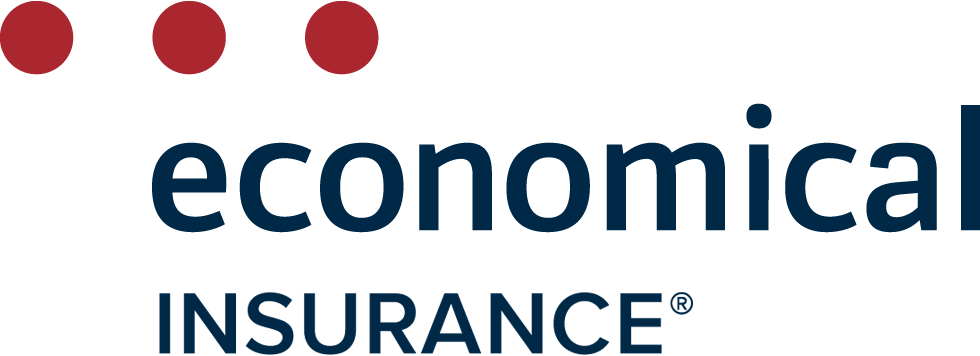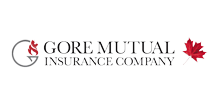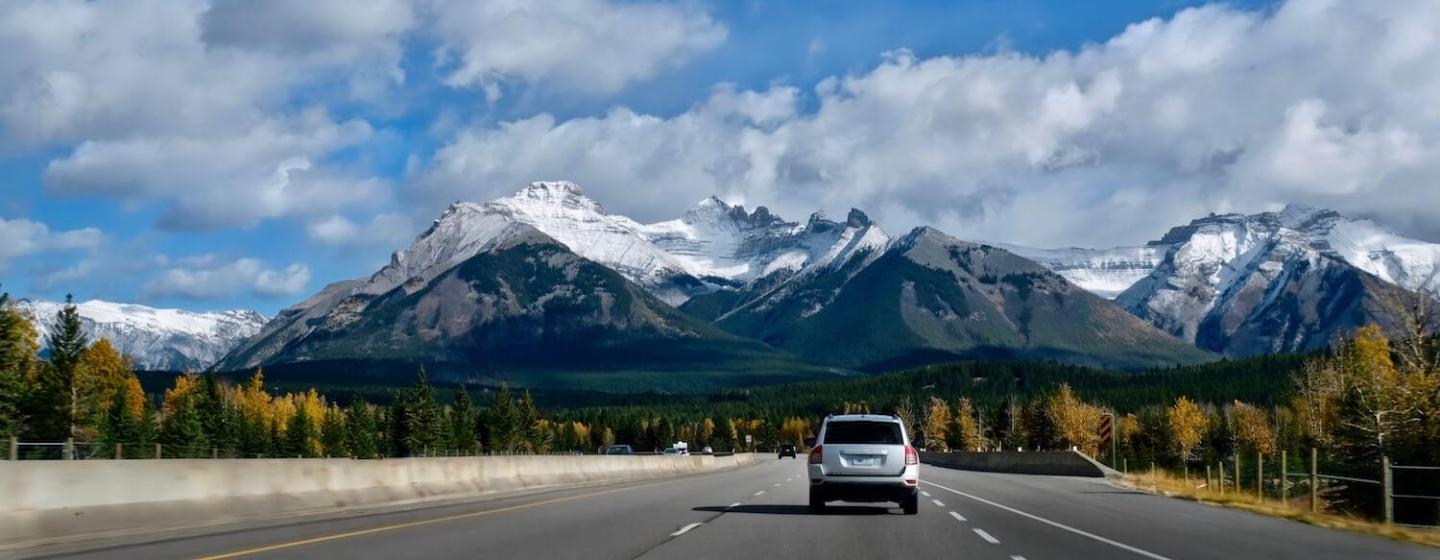
Cheapest Car Insurance in Alberta
Compare Alberta car insurance rates and save an average of $727.*
Jump straight to...
- How does Alberta car insurance work?
- Mandatory and optional auto insurance coverage in Alberta
- How to get the cheapest Alberta car insurance quote
- How much does car insurance in Alberta cost?
- Cheapest car insurance in Alberta 2023
- Alberta car insurance rates by city
- Factors that influence your auto insurance premium
- 10 tips for getting cheaper car insurance in Alberta
- Alberta car insurance quotes by age group and gender
- Cars with the cheapest insurance in Alberta 2023
- Cheapest car insurance companies in Alberta
- Frequently asked questions about Alberta car insurance
How to get the cheapest Alberta car insurance quote
Compare multiple auto insurance quotes in the time it takes to get just one.
Enter Postal Code
Enter your postal code to begin!

Enter Driver Details
Tell us a little bit about your vehicle, driving & car insurance history.

Compare Your Quotes
Compare your car insurance quotes from more than 50 top insurance companies.

Pick Your Policy
Pick the insurance policy that's right for you to connect directly with the insurance professional of your choice.
We've got hundreds of 5 star reviews
2,069 reviews on TrustPilot. See some of the reviews here.
Syef Hussain
James C McWatters
Allan Sulisz
Sean Figueredo
Dina Robichaud
Tim Laurie
Jaideep Seth
Marion Crocker
Perry Janes
Hemant
Ciro Spiezia
Aurelia M.
PETER WALCOT
Rody Drover
tim hannah
Larry Fischer
Peter
RH
| Cheapest Rate | $2,398 |
| Average Rate | $3,165 |
| Savings: $767 (24%) | |
| Cheapest Rate | $2,993 |
| Average Rate | $3,953 |
| Savings: $960 (24%) | |
| Cheapest Rate | $2,963 |
| Average Rate | $8,645 |
| Savings: $5,682 (66%) | |
How does Alberta car insurance work?
Every driver in Canada must have car insurance; it's required by law in each province.
Alberta has a private car insurance market, but its rates are regulated by the provincial government’s Grid rating program. This approach, which is unique in Canada, is designed to ensure that the minimum required coverage remains affordable.
The regulator, the Alberta Automobile Insurance Rate Board (AIRB), approves or denies rate increases requested by private insurance companies.
The Grid rating program
AIRB is also the group behind the Grid rating program. First introduced in 2004, the Grid dictates the maximum premium that insurers can charge for basic coverage (i.e. third-party liability, accident benefits and direct compensation property damage). For optional coverage beyond basic, insurance companies set their own rates without intervention from the regulatory board.
Where a driver lands on the Grid is determined by several factors, including the number of years they’ve been licensed, any at-fault claims or speeding tickets on their record, and if they’ve completed an approved driver training program.
Drivers move up or down on the Grid as their driving record changes. The lower their Grid Level, the cheaper your insurance rate.
Less experienced drivers generally face the highest premiums, but Grid often caps their basic rates. Each at-fault claim moves the driver five steps up the Grid, and this can increase their insurance premium by hundreds to thousands of dollars.
If convicted or found at-fault for an accident, an Alberta might also be hit with surcharges on top of their premium.
A safe and experienced driver can expect to pay less than Grid rates. According to the AIRB, about 94.5% of Alberta drivers pay less than the maximum set out by the Grid program.
An Alberta insurance provider determining a car insurance premium for a driver seeking basic coverage must offer a premium reflected on the grid if it’s cheaper than the premium they would have otherwise quoted.
Mandatory and optional auto insurance coverage in Alberta
| Insurance coverage | Mandatory or optional | Description |
|---|---|---|
| Accident benefits | Mandatory | Sometimes called no-fault benefits or Section B benefits, this covers costs associated with income replacement up to 80% of weekly earnings (max. $400 per week) for up to two years; medical treatment up to $50,000 per person per accident; funeral expenses of up to $5,000 per person; death benefits of $10,000 for head of household plus $2,000 to each dependent, $15,000 for first survivor and $4,000 for each additional survivor; $10,000 for the death of the spouse of the head of the household. |
| Direct Compensation for Property Damage (DCPD) | Mandatory | This coverage, introduced in Alberta at the beginning of 2022, means that the driver’s own insurance company compensates the driver for damages following a collision for which the driver is not at fault. Alberta’s previous system, which was tort-based, required that drivers who were not at-fault to seek compensation from the other driver’s insurance company. This approach tends to be time-consuming and costly. |
| Third-party Liability | Mandatory | Also known as third-party liability, this covers costs associated with lawsuits pertaining to injury, deaths, or damage to property of a third party in which you are responsible. The mandatory minimum policy limit is $200,000. According to AIRB, over 98% of Alberta’s drivers opt for additional liability coverage. The most common coverage limits are $500,000, $1 million and $2 million. |
| Collision coverage | Optional | Covers car replacement or repair costs if your car is damaged in a collision and the policyholder is at fault. |
| Specified perils | Optional | Covers damage from perils specifically named in the Alberta auto insurance policy, such as attempted theft, damage in transport, earthquake, explosions, fire, lightning, riots or windstorm. |
| All-perils | Optional | Covers many perils, broadly, has similarities to collision and comprehensive coverage. |
| Accident Rating Waiver (SEF 39) | Optional | Prevents an Alberta car insurance premium from going up following a collision in which the policyholder is at fault. |
| Family Protection (SEF 44) | Optional | Protects drivers in a collision with an underinsured or uninsured driver. Will cover the difference if costs exceed the other driver’s insurance benefit. |
| Legal Liability for Damage to Non-Owned Automobiles (SEF 27) | Optional | Extends physical damage coverage to include rental cars. Drivers with this endorsement on their policies don’t need to purchase additional coverage when they rent a car. |
| Limited Glass (SEF 13D) | Optional | Reduces the amount of coverage for glass damage in exchange for a lower premium. |
| Limited Waiver of Depreciation (SEF 43R) | Optional | Waives depreciation on the repair or replacement of a new vehicle following damage from a covered peril. Is usually applicable to vehicles that are less than two years old. |
| Loss of Use (SEF 20) | Optional | Compensation for transportation costs up to a limit when a vehicle is damaged due to a covered peril. |
| Towing and Emergency Services (SEF 35) | Optional | Coverage for towing and other emergency service costs when a vehicle is disabled, and the driver doesn’t have roadside assistance. |
How much does car insurance in Alberta cost?
Alberta auto insurance prices are as varied and diverse as the province itself. According to the RATESDOTCA Insuramap, average premiums range as high as $1,793 per year for people living in Blackfalds or $1,741 for Calgarians to a low of $1,286 for the residents of Medicine Hat. The provincial average is $1,468 per year.
Places like Calgary, which are large by Alberta standards, have greater urban density, which means traffic infractions and thefts occur at a higher rate. Many people commute into the city for work, meaning more people spend time on the road. All these factors lead to a greater abundance of claims.
While Blackfalds is not a large town and sits just north of Red Deer, it is the centre point between Edmonton and Calgary. A lot of traffic and potential for risk comes and goes through it, and during winter months, has seen pileups and accidents on Highway 2.
On the other hand, Medicine Hat sits outside of the Calgary-Edmonton corridor and has a relatively small population. Car insurance is determined by factors such as location, driving habits and population density. With a smaller population and fewer chances for crime and risks, rates remain low in the area.
Cheapest car insurance in Alberta 2023
Medicine Hat is the cheapest city in Alberta for insurance at $1,286 per year. The provincial average for 2023 stands at $1,468, which is 12.4% higher than Medicine Hat rates.
Medicine Hat is Alberta’s seventh largest city, and the cost of living is relatively cheap compared to other areas in the province and the country, according to the Alberta Living Wage Network. Its lower rates are likely partly due to fewer cars: about 23,000 people report using a car as their primary mode of transportation, while in Calgary, close to 437,000 rely on their car daily, according to 2021 data from Statistics Canada.
Alberta car insurance rates by city 2023
Using the RATESDOTCA Auto Insuramap, it’s clear that drivers in Blackfalds and Fitzgerald are paying the highest average car insurance premiums at a rate of $1,793 and $1,752, respectively.
Drivers in Calgary are slightly lower at $1,741, while people in Edmonton are at the bottom of the top five list, with an annual rate of $1,586 per year.
Insurance rates in Alberta are determined by many factors, including such things as:
- Driving history
- Infractions
- Claims history
- Location
- Cost of replacement
Below are the five cities with the highest insurance premiums:
| Alberta city | Average 2023 premium |
|---|---|
| Blackfalds | $1,793 |
| Fitzgerald | $1,752 |
| Airdrie | $1,743 |
| Calgary | $1,741 |
| Edmonton | $1,586 |
-
Why should Alberta drivers compare car insurance quotes online?
InsuranceHotline.com is a convenient way to save money and time
It's Fast
In five minutes or less, get quotes from 30+ leading insurers
It's free
Theres no hidden fees and no catch. InsuranceHotline.com is always free!
It saves
Get a quote that is 26% less than the average market rate.*
Age
Alberta insurance companies look at age as a risk factor when determining your auto insurance premiums. Younger, less experienced male drivers, for example, pay the most for car insurance. Insurance companies consider them especially risky to cover and less responsible than older, more mature drivers.
The vehicle you drive
Expensive or high-performance cars cost a lot to repair, maintain, and replace if stolen. If you own a more "basic" car with few or standard options, your Alberta insurance rates may be lower because replacement values are lower as well.
Where you live
Location is an important factor in determining your Alberta car insurance. High crime or high-risk areas could lead to theft and vandalism. You may also live in an area with high claims activity, which will influence your rates.
Your driving record
A clean driving record with no infractions will help you keep your Alberta auto insurance cheap.
Your insurance history
Insurance companies look at your history to determine your Alberta insurance rates. Keep claims low or non-existent. Also, failure to pay your premium or paying late might not only affect your credit score but also raise your risk factor in the eyes of your Alberta insurance provider.
The coverage options you choose to include in your policy
Having auto insurance in Alberta is mandatory. You must have at least basic insurance, which covers accident benefits and third-party liability.
But you can also add other optional coverages, which will raise your premiums. This can include:
- Collision: Provides coverage for damage to your vehicle caused by a crash or rollover for which you are at fault.
- Comprehensive: Provides coverage for damage to your vehicle not caused by a collision, such as vehicle theft, vandalism, fire and animal collision.
- Glass: This special coverage provides coverage for all glass on your vehicle if you have reduced glass coverage on your auto policy using SEF 13D.
Your policy's deductibles
Increasing deductibles and paying upfront prior to any claims helps decrease your risk factor in the eyes of your Alberta insurance provider. Talk to your provider or agent about where you can save and how much your budget will allow when considering deductibles.
If you're bundling with other insurance products, such as home insurance
Bundling various insurance products under one provider is a great way to save on premiums. Insurance companies thank you for your loyalty with discounts.
Gender and marital status
Provinces such as Ontario, Quebec and Alberta consider gender and marital status when determining your Alberta auto insurance premiums. Like the age factor, insurance providers think single drivers are a little less settled down than married ones and maybe have less experience or higher risk.
The company's own insurance claims history
Insurance companies have a tight line to walk in terms of meeting obligations and ensuring they have the money to do so. If insurers see that claim settlements are outpacing revenue from premiums (the relationship is tracked using a metric known as the 'combined ratio'), they will their customers' increase rates.
10 tips for getting cheaper car insurance in Alberta
Insurance rates are going up in Alberta, but theres a lot you can do to ensure that youre getting the best price.
1) Shop around
In Alberta, rate changes are regularly approved. Compare quotes before renewing your policy to find the cheapest option.
2) Increase your deductible
Save in the neighbourhood of 5 to 10% by increasing your deductible from $500 to $1,000.
3) Pay your premiums all at once
Pay your premiums annually, in one lump sum, to avoid administrative fees that sometimes accompany monthly payments.
4) Bundle your policies
Save 5 to 15% when you bundle your home and auto insurance from the same company that covers your car.
5) Insure all cars together on the same policy
If you have more than one vehicle, save 10 to 20% by insuring them on the same policy.
6) Review your policy annually
Each year, review your optional coverages to ensure they are still necessary. If not, getting rid of these excess coverages will lower your premiums.
7) Ask about discounts
Some insurers offer discounts to members of local organisations like the Alberta Motor Association, AUPE members, or university alumni. Ask your provider about the group discounts they offer and see if you qualify.
8) Change your tires seasonally
Let your insurer know if you have winter tires, as some providers offer a winter tire discount of about 5%.
9) Go to school
Encourage young drivers to take driver’s training. Once the course is completed, the insurance savings will offset the initial cost.
10) Moving? Buying a new car?
Where you live and what you drive are two important factors in what you pay for coverage. If you move or buy a new vehicle, don’t assume your current provider will continue to offer you the best price. Shop around to be sure.
The cheapest car insurance quotes people are getting in Alberta at InsuranceHotline.com
Just a few examples of custom savings for drivers based in Alberta.
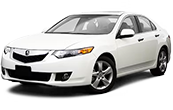
Cheapest Quote: $733
Driver: 41, Male
From: Calgary, Alberta
Driving: 2009 Acura TSX
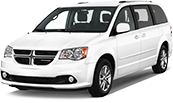
Cheapest Quote: $753
Driver: 38, Female
From: Edmonton, Alberta
Driving: Dodge Grand Caravan
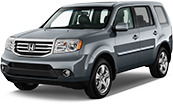
Cheapest Quote: $765
Driver: 43, Female
From: Airdrie, Alberta
Driving: 2015 Honda Pilot

Cheapest Quote: $672
Driver: 40, Male
From: Red Deer, Alberta
Driving: 2001 Acura 3.2 TL 4DR
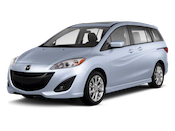
Cheapest Quote: $575
Driver: 42, Female
From: Lethbridge, Alberta
Driving: 2010 Mazda Mazda3 Sport GS
Cheapest Quote: $611
Driver: 40, Male
From: Calgary, Alberta
Driving: 2000 Nissan Xterra SE
Alberta car insurance quotes by age group and gender
| Age range | Male average premium | Female average premium |
|---|---|---|
| Below 20 | $4,472.20 | $4,492.13 |
| 20-29 | $3,613.40 | $3,394.46 |
| 30-39 | $3,140.27 | $2,946.26 |
| 40-49 | $2,574.25 | $2,561.10 |
| 50-59 | $2,047.48 | $1,986.65 |
| 60 or above | $1,474.27 | $1,426.31 |
The chart above reflects an interesting trend that is quite well-known about auto insurance rates. Men, especially younger men in their 20s and younger pay the most out of any group for auto insurance. As you age and gain more driving experience, rates come down significantly. Drivers above 60 are in the sweet spot of cheap Alberta auto insurance, as men and women pay $1,474.27 and $1,426.31, respectively.
Premium data is from real InsuranceHotline.com quotes.
Cars with the cheapest insurance in Alberta 2023
| Year, make, and model | Quoted annual premium |
|---|---|
| 2006 Pontiac GG GT V6 4DR | $484 |
| 2011 Chevrolet Cruze IT Turbo 4DR | $500 |
| 2009 Ford Focus SES 4DR | $527 |
| 2006 Jeep Liberty Sport 4DR 4WD | $532 |
| 2006 Ford Taurus SE 4DR | $534 |
| 2002 GMC Sierra 1500 REG CAB 4WD | $537 |
| 2007 Ford Ranger XLT Supercab 4WD | $539 |
| 2012 Dodge Ram 1500 SLT Quad CAB 4WD | $540 |
| 2004 GMC Envoy SLT 4DR 4WD | $548 |
| 2003 Chevrolet Impala LS V6 4DR | $553 |
Alberta insurance providers (and all providers in Canada) look at your vehicle’s safety rating and the likelihood of it getting stolen when considering how much to charge for insurance. Every vehicle model is given a Canadian Loss Experience Rating (CLEAR) according to these and other factors, such as claims costs, which all help determine your auto insurance premium.
Interestingly, Alberta auto insurance providers will also look at the size of your car. Larger vehicles, such as pick-up trucks, may receive cheaper rates than smaller cars. Why? Larger vehicles have more robust frames and take less damage in accidents and bad weather than smaller or lighter vehicles.
The age of your vehicle is another factor that providers look at. Newer cars, while having more safety features, can also be expensive to replace or repair. Each provider has different methods to assess your vehicle, and it’s best to talk to your provider about your car and insurance options for the cheapest rate.
The above rankings are based on individual quotes completed on InsuranceHotline.com data. Each driver is different, and your age, gender and location can affect your premiums. As a result, results will vary from person to person.
Cheapest car insurance companies in Alberta
Who doesn't want a deal? Especially when it comes to finding the cheapest car insurance companies in Alberta. But just like all drivers are not alike, the same is true for insurance providers.
Insurance providers will base their premiums on your driving and claim history, location, vehicle type, age and gender, and other factors. That's step one.
But the quotes you receive from providers will vary, and there is no flat rate. What you can do is compare quotes on sites like InsuranceHotline.com to ensure you are finding the cheapest Alberta auto insurance that suits your individual needs. By plugging in your individual needs and circumstances, you will get the cheapest rates that pertain to you.
Let's look at these examples based on a 25-year-old man from Calgary:
| Company A | Company B | Company C |
|---|---|---|
| 2023 Porsche 911 Carrera 2 2DR Coupe | 2003 Honda Civic DX 4DR | 1999 Pontiac Sunfire SE 4DR |
| Cheapest quote: $1,497 | Cheapest quote: $1,122 | Cheapest quote: $1,490 |
The table shows that for a 25-year-old male driver with a clean driving record in Calgary, insuring three cars under three different carriers will yield three very different rates.
While the driver is the same in each case, the other factors are not. That’s why comparing insurance quotes on sites like InsuranceHotline.com is so important when seeking Alberta auto insurance. It’s efficient, provides the cheapest rates, and will do so from the top providers in the province.
Frequently asked questions about car insurance in Alberta
Why does Alberta car insurance cost so much?
Alberta is home to two of the largest cities in Canada: Calgary and Edmonton. With high-density areas comes auto theft and vandalism, a greater chance for collisions and increased claims leading to higher insurance costs. Recent spikes in vehicle theft, collisions and distracted driving convictions have also increased rates province-wide.
An increase in fatalities
According to Transport Canada, in 2021, there was a slight increase in the number of fatalities, serious injuries, and total injuries, with Alberta fatalities well above the national average, as seen below:
Canada fatalities per 100,000 population = 4.7
Alberta fatalities per 100,000 population = 6.2
Canada fatalities per 100,000 licensed drivers = 6.5
Alberta fatalities per 100,000 licensed drivers = 8.2
This explains, in part, why Alberta premiums are higher than other parts of Canada.
In addition to any liability protection insurance providers must offer following a collision to cover medical expenses, they must also cover costs associated with repairing or replacing vehicles. Higher repair and replacement costs lead to more expensive premiums. This is especially expensive for newer cars which tend to have many electronic components and may be self-driving.
Which car insurance company is the cheapest in Alberta?
There is no one car insurance company that is the cheapest overall. Insurance companies assess drivers based on unique risk factors like your home address and personal claims history, which is why rates for the same coverage can vary substantially from one company to another. What is cheapest for you, might not be what’s cheapest for someone else.
To find the company that offers you the best rate and coverage, shop around and compare quotes. This savings technique is something that you should do annually whenever it's time to renew your policy.
Does Alberta’s private auto insurance system help drivers?
It depends on who you ask. In many cases, having a private insurance system breeds competition and the desire of providers to attract customers with benefits and competitive pricing.
However, inflation has taken a toll on drivers in Alberta. So much so that the government froze any new rate increases at the beginning of 2023. This has upset private insurers who say the freeze does not help that affordability and new challenges will emerge when the freeze lifts.
Because inflation is slow to abate, and the freeze has not been in effect for that long, more time will be needed to see who benefits and if the private system is helping drivers in the near and long term.
Why should Alberta drivers compare car insurance quotes online?
Car insurance rates keep going up in Alberta, and if you renew your policy with the same provider you will almost certainly have to pay more than you did last year. The only way to buck this trend is to shop around for a better rate.
InsuranceHotline.com works with over 50 insurance providers. We aggregate their rates and give you multiple quotes side by side so you can choose the policy thats best for you. If you like what you see, well connect you to a licensed broker to secure the policy.
Alberta drivers who used InsuranceHotline.com saved an average of $727* on their car insurance. Find out how much you could save today.
*Shoppers in Alberta who obtained a quote on InsuranceHotline.com from January to December 2021 saved an average of $727 per year. The average savings represents the difference between the shoppers’ average lowest quoted premium and the average of all other quoted premiums generated by InsuranceHotline.com.


